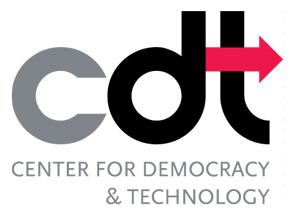November 12, 2014
United States Senate
Washington, D.C. 20510
Dear Senator:
We, the undersigned human rights organizations and trade associations, write to convey our strong opposition to S. 2536, the “Stop Advertising Victims of Exploitation” (SAVE) Act. We of course share the vital goal of ending human trafficking, of all kinds. Trafficking is an egregious crime. Congress should provide additional funding for desperately needed victims services, counseling, and community outreach as well as prosecutions under the strong federal law that already criminalizes the conduct of those who knowingly advertise such activity online. However, the unfortunate fact is that this bill is overbroad, counterproductive, and would place unconstitutional burdens on the free speech and privacy rights of millions of Americans who have nothing to do with trafficking.
S.2536 creates new and draconian federal criminal liability for websites and other online services that host content created by third parties, including both online and print publications, many of which are small businesses. Furthermore, not only does this raise serious free speech and privacy concerns, it will drive the truly bad actors – the traffickers – underground and overseas, while subjecting wholly innocent individuals to potential criminal liability for unknowingly running afoul of this sweeping law.
S.2536 would do two things. First, it would create a new crime for websites or other services that host user-generated “adult advertisements,” broadly defined to include completely lawful and non-controversial content, that post this content in “reckless disregard” of the fact the content is unlawful. That is, a site operator who receives hundreds or thousands of advertisements uploaded by his users each day could face up to ten years in prison if one of those ads is ultimately linked to child trafficking or state child exploitation crimes. While existing aiding and abetting crimes should certainly reach someone who knowingly hosts a child trafficking ad with the intent to further the trafficking venture, S.2536 would mean that websites and services hosting user-generated content could be held criminally liable even if they do not have actual knowledge that an ad for illegal activity appears on their sites.
Consequently, virtually any user-generated content host—like Facebook, Twitter, eBay, Amazon or various online dating sites—will have every incentive to prohibit content that falls under the bill’s broad definition of “adult advertisements,” which includes communications that are wholly or only partially devoted to proposing lawful commercial exchange for lawful services – in other words, speech that is unquestionably protected by the First Amendment. At best, user-generated content sites will default to taking down content that is flagged as an “adult advertisement” as soon as a complaint is lodged, regardless of whether the content appears to be related to child trafficking or state child exploitation crimes, or even fits the bill’s definition of “adult advertisement” at all. This overbroad approach would obviously lead to the removal of constitutionally protected speech, but for sites to do otherwise would invite the potential for federal criminal liability.
Additionally, many sites would likely also stop pre-screening postings for illegal content. Under the bill, a site operator would face potential liability if it knew of the existence of an “adult advertisement” on its site and that content were ultimately linked to a trafficking venture; one wrong decision in a pre-screening process that allowed something unlawful to slip through could open the door to prosecution. And given the vague definitions and broad scope of the new crime, S.2536 would create a situation ripe for selective enforcement against sites and services that host disfavored – but wholly lawful – speech.
The second offense described in S.2536 would create burdensome new record-keeping requirements. Although styled as a “safe harbor,” the recordkeeping offense would impose a penalty of up to five years in jail for noncompliance. It would require any website or other online or print service that hosts or provides
content that happens to fall under the bill’s definition of “adult advertisement” – which, again, is broadly defined and would cover completely lawful content, including some non-commercial content – to obtain the government-issued photo identification of any person who posts such content, and to keep that information for seven years. S.2536 does not require that the website operator, online service, or publication know or intend to host “adult advertising” content before imposing liability. If one of a site’s millions (or billions) of users were to upload a post or an image that fell under the bill’s broad definition and that site operator had not already collected a copy of the user’s driver’s license, the site operator would face a mandatory minimum penalty of $250,000 and up to 5 years in prison. The effects would be felt the hardest by smaller businesses, both online and print, for whom one single violation triggering the mandatory minimum penalty could very well mean bankruptcy, and would serve as a disincentive to new start-ups.
Thus, S.2536 would create obvious privacy concerns, as any reasonable operator would feel immense pressure to collect the government-issued photo ID of each of their users to guard against the potential that one of them might one day post lawful content covered by the bill. This would create thousands of privately held databases of sensitive information and dramatically increase the likelihood of damaging data breaches that expose individuals’ personal information to malicious actors.
Further, because the recordkeeping requirement would also apply to those who “place” advertisements as well as those who host them, individuals who upload lawful content that falls under the bill’s broad definition of “adult advertisement” would be likely to violate the law en masse simply because they are not aware of it. These individuals could become easy targets for prosecution for failure to comply with the recordkeeping requirement, diverting attention away from pursuing traffickers and those engaged in the actual victimization of children.
The bill would also require the Department of Justice to develop a blacklist of “euphemisms” or “code words” for various commercial activities, which may not be used at all in advertising. Website operators, online ad networks, and newspaper publishers alike would be forced to censor ads containing these blacklisted terms, even when those ads are for completely lawful goods and services. Such a requirement is unworkable in practice, would give the Department of Justice an enormous amount of discretion to censor online speech, and would not withstand scrutiny under the First Amendment.
Again, we strongly support anti-trafficking measures that focus on providing support and services for the victims and note that existing federal law already criminalizes the actions of those who intentionally aid or abet a trafficking venture. Unfortunately, the SAVE Act would not be effective in preventing traffickers from using third-party online content hosts, and would create significant burdens on the free speech and privacy rights of millions of wholly innocent Americans who have no connection to trafficking whatsoever. For these reasons, we urge you to oppose the SAVE Act.
Please do not hesitate to contact Emma Llansó with the Center for Democracy & Technology at 202-637-9800 or ellanso@cdt.org or Gabe Rottman with the American Civil Liberties Union at 202-544-1681 or grottman@aclu.org with any questions.
Sincerely,
American Civil Liberties Union
Association of Alternative Newsmedia
Center for Democracy & Technology
Electronic Frontier Foundation
Internet Commerce Coalition
National Coalition Against Censorship
New America’s Open Technology Institute
PEN American Center
Woodhull Sexual Freedom Alliance








[…] S.2536 would do …read more […]
[…] We, the undersigned human rights organizations and trade associations, write to convey our strong opposition to S. 2536, the “Stop Advertising Victims of Exploitation” (SAVE) Act. We of course share the vital goal of ending human trafficking, of all kinds. Trafficking is an egregious crime. Congress should provide additional funding for desperately needed victims services, counseling, and community outreach as well as prosecutions under the strong federal law that already criminalizes the conduct of those who knowingly advertise such activity online. However, the unfortunate fact is that this bill is overbroad, counterproductive, …read more […]